
 I am listening to a wonderful song now... and will provide the link here as well... so that you too can listen to it. It is the song "Aaoge Jab Tum Saajana" from the superhit hindi romantic movie "Jab We Met". Written and directed by the very talented Imtiaz Ali, and starring (the pre-size zero) Kareena Kapoor (as Geet Dhillon) and (the young, quiet and mature looking) Shahid Kapoor
I am listening to a wonderful song now... and will provide the link here as well... so that you too can listen to it. It is the song "Aaoge Jab Tum Saajana" from the superhit hindi romantic movie "Jab We Met". Written and directed by the very talented Imtiaz Ali, and starring (the pre-size zero) Kareena Kapoor (as Geet Dhillon) and (the young, quiet and mature looking) Shahid Kapoor (as Aditya Kashyap)
, in their fourth film together... and their first "full-fledged romantic drama". This mesmerizing song has been sung by Ustad Rashid Khan. Listen to it (preferably with your eyes closed.) It really is a lovely song... which will touch your heart every time you listen to it! Here is the YouTube link.
That he is a prodigy there was no doubt... he was only eleven when he gave his first concert. A strict disciplinarian, Ustad Nissar Hussain Khan would insist on 'voice training' (sur sadhana) at four in the morning, and make the young Rashid practise one note of the scale for hours on end. A whole day would be spent on practising just a single note. Although Rashid detested these lessons as a child, the disciplined training shows in his easy mastery of taan (glissandos) and layakaari today. It was not until he was 18... that Rashid began to truly enjoy his musical training. And Indian classical music... received yet another gem... and a hope for the future.
1. Here is a YouTube link... which consistes the video of the Ustad singing the "Raag Basant". This is a holi song concerned with Lord Sri Krishna's pastimes in Vrindavan.
2. "Raag Desh" (link) - "Raag Desh" is a very beautiful raga... and it becomes even more beautiful when sung by Ustad Rashid Khan.
3. "Raag Hansadwani" (Link) - Soul stirring devotion... !
5. "Raag Chhayanat" (Link) - Beautiful! Its a step closer to divinity!
9. "Raga Marwa" (Link) - Wonderful! Words are not enough to express... how you feel listening to this...
10. "Alaap in Raag Kirwani" (Link) - Superb! Ustad Rashid Khan is simply superb! His sonorous voice mesmerizes...
11. "Prabhu Aawan" (Raag Bhairavi) [Link] - Depicting Mirabai's love, devotion and longing for Lord Sri Krishna. What a beautiful, clear voice and wonderful control... !!!
You can find the link to the South Asian Women's Forum (SAWF) archive of articles on Classical Indian Music: HERE. Also, here is a link... with some more "Raags"/"Ragas"/"Thumris"/"Malkauns"... rendered by Ustad Rashid Khan. Listen to them... and enjoy your weekend!
Ustad Rashid Khan's voice produces that cascading energy of a powerful voice that can internalize the effect of a raga (raag) with mesmerizing skill. He has naturally taken audiences by storm. For Rashid watchers, what matters most is that, after a long time one has encountered a natural genius. The buttery texture of Rashid Khan's voice mesmerizes. A very soulful voice... masterly, majestic and yet meditative. Fabulous! I never get tired of listening to classical music... it is so refreshing, so rejuvenating... !
A successful classical vocalist, the magic of his voice has cast a spell over his audiences, making him by far one of the most popular vocalists of his generation. Pandit Bhimsen Joshi is believed to have said of him, "there is now at least one person in sight who is an assurance for the future of Indian vocal music"... in response to the concern of connoisseurs of Hindustani vocal music about whether its tradition of excellence would continue. It indeed has - with the Ustad, the young maestro, one of the leading torch-bearers. He was awarded the Padma Shri, as well as the Sangeet Natak Akademi Award in 2006. What a voice! What a gift from God! Ustad Rashid Khan is definitely one of the Gems in Indian classical music. What a great artist... !!! He is argueably the most talented among the new lot. You can view his website HERE.
Here is the YouTube link of Pandit Bhimsen Joshi and Ustad Rashid Khan performing the "Raag Darbari" (Part 1). Two maestros come together to create sheer magic! What a soulful rendition of the "Raag Darbari"! Pt. Bhimsenji is truly a legend and Ustad Rashid Khan Sahab is just amazing! His rich sonorous voice and his entire approach... is just beyond words... his voice has a mesmeric quality.
Pt. Bhimsen Joshi and Ustad Rashid Khan - "Raag Shankara" (Part 1) - The Link. A difficult Raag performed beautifully... by these giants of Hindustani music. Sheer bliss! (This "raag" is also called the "Lord of Ragas ". You can find the recognized expert on Indian Classical music, Rajan P. Parrikar's views: HERE. His Music Archive - Musical Traditions of India - can be read: HERE.)
Pt. Bhimsen Joshi and Ustad Rashid Khan - "Raag Miyan ki Todi" (Link) - This is a short clip of the two maestros singing a 'bandish' in "Raag Miyan ki todi" followed by the late Ustad Vilayat Khan speaking about this 'Jugalbandhi'. Wonderful fusion of 'Kirana' and 'Rampur Sahwan Gharana'!! Their mutual respect shines through. Both are Divine Singers!! "Langara kankariya ji na maro, more angawa mein lag jayegi, sun paave mori saas nanadiyan, chod chod ghar aawengi... " Wah Ustad! Wah!
Musical style: The Rampur-Sahaswan gayaki (style of singing) is closely related to the Gwalior Gharana, which features medium-slow tempos, a full-throated voice and intricate rhythmic play. Rashid Khan includes the slow elaboration in his vilambit khayals in the manner of his maternal grand-uncle and also developed exceptional expertise in the use of sargams and sargam taankari (play on the scale). He is also a master of the tarana like his guru but sings them in his own manner, preferring the khayal style rather than the instrumental stroke-based style for which Ustad Nissar Hussain was famous. There is no imitation of instrumental tone. His mastery of all aspects tonal variations, dynamics and timbre adjustment leave very little to be desired in the realm of voice culture. He is also extremely adept in producing all the other techniques and characteristic features of the Rampur Sahaswan style. His 'taankari' is as powerful and varigeated as any of his predecessors and, in fact, among the best in the nation at the moment.
His renderings stand out for the emotional overtones in his melodic elaboration. He says: "The emotional content may be in the alaap, sometimes while singing the bandish, or while giving expression to the meaning of the lyrics." This brings a touch of modernity to his style, as compared to the older maestros, who placed greater emphasis on impressive technique and skillful execution of difficult passages. The older Ustads, being essentially court singers, put the emphasis on polished technique, skillful execution of difficult passages and the power to astound with their musicianship. The Nawabs, Maharajas and their courtiers who were their prime audience found these things more interesting and did not bother about emotional appeal. For the "khayal" to them was classical art song and emotional appeal was not an important requisite for this type of music.
But after independence and especially in the second half of the 20th century, classical music, including "khayal", which like the "thumri", was the most popular vocal form, was patronised by audiences coming from the middle and upper-middle class segments of the society. The modern listener thus tended to find Ustad Mushtaq Hussain or even Ustad Nissar Hussain rather dry for their taste. As a result these singers were not as popular as some of their contemporaries who infused emotions into the "khayal". With the entry of Ustad Rashid Khan the tables have been turned and the spontaneous emotional appeal of his manner of singing, be it in the melodic elaboration or in the upper octave "pukars", have won him enthusiastic listeners and followers the world over.
Rashid Khan has also experimented with fusing pure Hindustani music with lighter musical genres, e.g. in the Sufi fusion recording "Naina Piya Se" (songs of the iconic musician, scholar, Sufi mystic and poet of Persian descent, Amir Khusro), or in experimental concerts with western instrumentalist and the pioneeer on the Indian jazz scene, Louis Banks. He also performs jugalbandis, along with sitarist Shahid Parvez and others. Here is a glimpse of Amir Khusro's poetry (in Persian): "Agar firdaus bar roo-e zameen ast, Hameen ast-o hameen ast-o hameen ast." Meaning: If there is any paradise on the face of the earth, It is this, it is this, it is this. (He was referring to the unmatched beauty of the 'Paradise on Earth'... Kashmir.)
Eulogies have poured in from various other quarters as well... with critics labelling him 'today's greatest... a successor to the Bade Ghulam Ali Khan and Ustad Amir Khan generation.'
Listen to these divine songs... these ragas... and have a very happy, tranquil and glorious weekend... !!!
Note: Some info gathered, courtesy Wikipedia.
Imtiaz Ali's latest direction Love Aaj Kal, starring Saif Ali Khan and Deepika Padukone was also very successful. He debuted in Bollywood as a director... with Socha Na Tha in 2005 with Abhay Deol (his debut movie as well, and produced by his Uncle Dharmendra) and Ayesha Takia in the lead. Despite its box office failure, the movie won critical acclaim. Dharmendra, is an award-winning Bollywood film star who has appeared in more than 200 Hindi-language films, including the iconic Sholay (1975).
"Sankarabaranam" is the Carnatic music. "Hamsadhwani" and "Shankara" are both "Bilawal thaat". Here is some info on Raag Bilawal.
The basic mode of reference in modern Hindustani practice (known commonly as the shuddha - basic - form) is a set which is equivalent to the Western Ionian mode — this is called Bilawal thaat in Hindustani music (the Carnatic analogue would be Sankarabharanam).
Here is Vidushi Kishori Amonkar rendering the "Raag Alhaiya Bilawal" (Link) Her voice is divine... she is lost yet attentive and carefully stringing each pearl of "Swar". And the violin is so beautiful, absolutely marvellous!
Vidushi Kishori Amonkar is a noted Indian classical vocalist. She sings khyal in the Jaipur-Atrauli Gharana style. She is also popularly known as "Gana Saraswati" (translation: the Saraswati of Singing)
Amir Khusro: He was an iconic figure in the cultural history of the Indian subcontinent. A Sufi mystic and a spiritual disciple of Nizamuddin Auliya of Delhi, Amīr Khusrow was not only a notable poet but also a prolific and seminal musician. He wrote poetry primarily in Persian, but also in Hindavi.
He is regarded as the "father of qawwali" (the devotional music of the Indian Sufis). He is also credited with enriching Hindustani classical music by introducing Persian and Arabic elements in it, and was the originator of the khayal and tarana styles of music. The invention of the tabla is also traditionally attributed to Amīr Khusrow. Amir Khusrau used only 11 metrical schemes with 35 distinct divisions. He has written Ghazal, Masnavi, Qata, Rubai, Do-Beti and Tarkibhand.
Photographs: (Courtesy Wikipedia)
1. Vasant Ragini, Ragamala, Rajput, Kota, Rajasthan. 1770. Vasant is the 'Raga' of spring. The painting depicts Lord Sri Krishna dancing with the 'gopis' (Author: Anonymous).
2. The famous Dal Lake in Srinagar.
3. Alexander Visits the Sage Plato, page from a dispersed manuscript of the Khamsa (Quintet) of Amir Khusrau Dihlavi. Mughal miniature attributed to Basawan, Lahore, 1597/87.




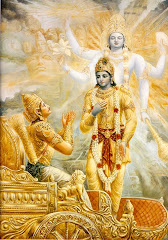



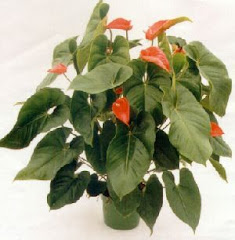


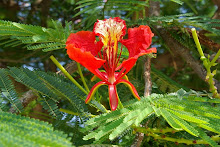

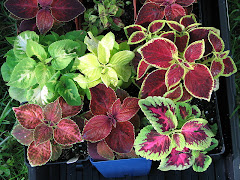
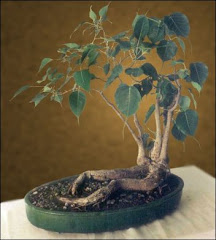


thanx for so so much information on ragas. will wait for your new update
ReplyDeleteNice post.. :)
ReplyDeleteI also love classical songs...
as I feel they are more near the divinity and spirituality.. :)
Thanks for providing the link of such mesmerizing and wonderful Songs... :)
Frankly,I have not read so much info on Ragas...may be because I do not understand Ragas.
ReplyDeletewow..such a lot of infos.. great work... hey..sorry roshmi... i couldn't come to ur blog and comment often.... but.. thanks for commenting again and again and being a great support for my blog....Greatest thing is you visit once and comment for whatever post you havent commented so far...... I am following you and will be a regular visitor for your blog here after...
ReplyDelete@ Anju Gandhi: Thanks Anju! :)
ReplyDelete@ Amit: Thanks Amit! Glad you liked it :)
ReplyDeleteIts wonderful to know that you too appreciate classical music. They are truly timeless...
@ BK Chowla: Music knows no boundaries, Chowlaji!
ReplyDeleteI feel classical music is the best... its appeal is timeless, and it is very soothing, very rejuvenating...
There are different "ragas" for different occasions. Infact, listening to classical music rendered by an Ustad, one gets transformed to an altogether different realm, and one feels closer to the divine.
Infact, Miyan Tansen, the greatest Indian musician ever... is believed to have performed miracles with music. He had the ability to create rain by singing "Rag Megh Malhar" and fire with "Rag Deepak".
@ Shankar: Thanks much Shankar! :)
ReplyDeleteI read several blogs including yours... and I try to comment on them as soon as I can. Sometimes I'm unable to do it immediately due to time constraint or unscheduled power outage, etc. But, I return to the post(s) at the first available opportunity and leave my comments...
Ustad Rashid Khan what to say of him I was fortunate enough to listen to him live in Kolkata ... though I am not a classical music follower but the renditions were completely mesmerizing ....
ReplyDeleteMy favourite topic - music! (next to books). I didn't read your full post. Just the first couple of paras. I love that song too. It kind of grows on you. Have you heard the song 'yeh honsla' from Dor. Its a superb song. The melody and the lyrics are really moving. Another gem is 'Bawara Mann' from Hazaron Khwaishein Aisi. Simply lovely. I also love this song 'Jo ab kiye ho data' from Umrao Jaan (the new one) rendered by Richa Sharma.
ReplyDeleteI avidly seek out the raga based songs from Bollywood numbers. Less these days - you will find them in compositions by A.R.Rahman and strangely - from Anu Malik!
Long ago, I had come across an audio tape called Diamonds are Forever - a collection of Lata songs - and this one had classical songs from Hindi movies. The selection was really superb. I have looked and looked for it in the market and didn't find it. There are many others by the same name. But that particular selection of songs is missing.
Anyway, thanx. Love to talk about music and you have given an opportunity to do so.
@ Dhiman: Yes, I agree! There is nothing like classical music... rendered by a maestro. I think classical music is a way of connecting with the divine!
ReplyDeleteUnfortunately I did not have the good fortune of listening to Ustad Rashid Khan...till date. But, I'm a big fan of this brand of music and never tire of listening to it.
@ Deepa: Thanks Deepa! I too love to talk about music, especially classical music... so join the club! :)
ReplyDeleteThanks for letting me know about: 'Jo ab kiye ho data' rendered by Richa Sharma. Will definitely listen to it...
Hi
ReplyDeleteExcellent write up. Is it possible to have musucal notes of beautiful song "Aaoge Jab Tum Saajana" from the hindi film "Jab we met". I am learning key board. The notes can be sent on my email address. Thanks
Binod Sinha
@ Binod: Thanks Binod... for stopping by my blog :)
ReplyDeleteUnfortunately, I do not have the musical notes of that fabulous song. But, will surely post it as soon as I find it...
Meanwhile check out the various YouTube videos of that song. One of them may have the notes...